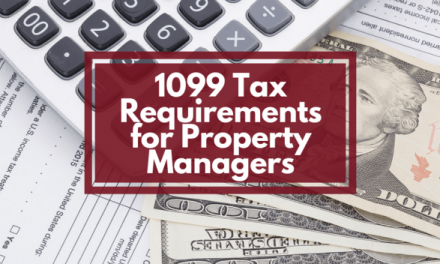
Successful real estate investors maintain a competitive edge through key habits. Thorough research and setting SMART goals guide their decisions. Continuous learning and networking keep them informed and connected. Specialization in niche markets helps identify opportunities. Adaptability and time management ensure responsiveness and productivity. They assess risks and manage finances wisely, often seeking mentorship for guidance. These habits pave the way for consistent growth and long-term success.
All real estate investors need to have a combination of skills, intuition, and strategic thinking. But to truly succeed, investors need to think out of the box so that they can maintain a competitive edge and stay ahead of the game. Here’s a look at some of the habits that top-performing real estate investors use as part of their strategy.
10 Habits of Successful Real Estate Investors
If you’re wondering what sets successful real estate investors apart from the rest, it comes down to putting these habits into action:
1. Do Your Research
If there’s one lesson you learn from how successful real estate investors do business, it’s to recognize that they always conduct due diligence before making an investment decision. Doing so helps them identify hidden opportunities, discover red flags, and make sound investment choices. But minimizing risks and maximizing returns requires time and effort. It entails thoroughly researching properties, analyzing market data, assessing potential risks, and performing financial evaluations.
Tip: Create a detailed strategy for evaluating potential investment opportunities and never rush into a decision without doing a full investigation first.
2. Set SMART Goals
Clear goals and a well-defined plan serve as a compass for top-notch real estate investors. By establishing specific, measurable, achievable, realistic, and time-bound (SMART) goals, real estate investors have a clear roadmap to guide their investment journey that enables them to make informed decisions and track their progress. This strategy also helps them remain focused so that they’re more likely to achieve both their short and long-term goals.
Tip: Instead of setting overly ambitious goals, start with small steps and build your way up. For example, deciding to increase your property portfolio by 20% is more attainable than deciding to double your property portfolio in three months. Setting deadlines is also a good way to ensure you stay on track.
3. Do Your Homework
Knowledge is power, and successful real estate investors know it. One of the reasons real estate investors succeed is because they make sure to stay in-the-know at all times. They are constantly researching markets, staying on top of current trends, learning about regulations, and preparing for changing conditions. They’re also committed to continuous education and often attend seminars to expand their knowledge base and expertise.
Tip: If you want to get up to speed, dedicate some time one day a week to ‘do your homework’. You can learn something new by reading industry newsletters, attending a conference or a virtual event, or reading the latest real estate industry news. Joining a rental association can also provide the opportunity to learn and network with other local industry experts.
4. Network, Network, Network
Never underestimate the value of building your network. Networking isn’t just a social activity but a strategic imperative. Succeeding in real estate is all about creating and growing your connections. When you make it a priority to engage with real estate professionals (including real estate agents, brokers, attorneys, contractors, and fellow investors) you can build and nurture a large network. And when you network, not only will you develop partnerships, but you’ll gain valuable insights and open doors to new opportunities. By networking you can also share your experiences and seek advice while learning from others’ experiences, discover new markets, and potentially find off-market deals, along with a support system that can guide you when you have to navigate challenges.
Tip: Make the effort to attend real estate networking events and consider joining online forums or communities. In addition, look for mentorship opportunities and build relationships based on mutual benefit and trust.
5. Develop a Niche
Successful investors master their particular market. They carve out a niche that aligns with their strengths and market opportunities. If you want to develop a niche, you’ll need to have in-depth knowledge of your specific market. And although this can take time, once you know it well, you’ll be better prepared to identify unique opportunities and navigate market fluctuations. Plus, you’ll be able to spot trends and position yourself as a go-to expert.
Tip: To find your niche, zero in on your skills, interests, and passions. Think about what genuinely intrigues you and choose something that aligns with your expertise.
6. Be Flexible
Real estate investors know that the market is dynamic and constantly fluctuating. But they also know that being flexible and pivoting when necessary helps them position themselves as industry leaders. To stay nimble and proactive, be sure to monitor market trends, embrace innovation, and adjust your strategies when needed. Leverage technology to help you conduct property analysis and mitigate potential risks.
Tip: Read industry publications to stay informed about market trends. Pay attention to economic indicators as well as local real estate conditions. Stay informed on current rental rates, property price trends, and even vacancy rates.
7. Master the Art of Time Management
Time is a valuable resource and investors who use their time wisely are more likely to succeed. Those that efficiently prioritize tasks and know when to delegate responsibilities, end up managing their time better in a way that allows them to maximize productivity. Effective real estate investors who optimize their time end up streamlining their investment operations which ultimately contributes to a more stabilized bottom line.
Tip: Identify urgent tasks so you can focus on high-priority items that directly contribute to your investment goals. Consider developing a daily or weekly schedule to maintain structure and use time-blocking techniques to ensure you complete all tasks. In addition, consider using real estate software to help you automate repetitive processes and stay organized.
8. Always Evaluate Risk Factors
Experienced investors are well aware that real estate inherently involves risk. With this in mind, they make sure they are adept at mitigating and managing it. They also recognized the legal implications involved. While some deal with risk by thoroughly conducting risk assessments, others develop contingency plans and diversify their portfolios. This way, they’re prepared to navigate challenges with resilience. In other words, before committing significant resources to a real estate project or investment, they make sure to have a strategy in place to minimize uncertainties and potential risks.
Tip: Instead of putting all of your capital into a single property or market, spread your investments across different types of properties or locations. A mix of assets enables you to balance potential losses more effectively.
9. Have Someone Help You Manage Your Finances
The majority of successful real estate investors have financial discipline. They manage their budget, accounting processes, and expenses meticulously. Some will even work with an accountant to handle all of their finances, especially their taxes. Since tax laws and regulations in real estate are complicated, working with a financial expert is well worth the expense.
Real estate investors understand the significance of maintaining liquidity, accurately assessing potential returns, and efficiently managing cash flow. And taking proactive measures helps them weather market fluctuations but also positions them to seize opportunities when they arise.
Tip: In addition to organizing your finances, be sure to maintain an emergency fund. Unexpected challenges in the real estate industry are more common than you may expect.
10. Work With Mentors
Just like seasoned real estate investors are willing to ask for help when it comes to their finances, they’re open-minded about seeking help from mentors, professionals, and other experts that will help them move forward with their careers. They recognize that working with these professionals can be vital for their investments and justify the cost of hiring them by gaining valuable insights, access to specialized knowledge, and strategic advice which can be priceless.
Tip: Look for a mentor or a professional whose expertise aligns with your goals. You’ll be able to connect with them on a more personal level and create a more meaningful and impactful relationship.
Takeaway
To be successful, real estate investors have to be extremely dedicated and committed to achieving their financial goals. By forming some of the habits provided above, you can increase your chances of achieving your goals and position yourself for consistent growth and long-term success.





